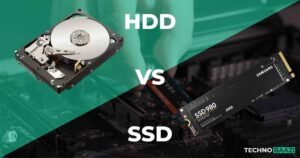When comparing Solid State Drives (SSDs), several factors are crucial for consideration. Here’s a list of key points to compare:
Storage Capacity
SSDs come in various capacities ranging from 128GB to several terabytes. Choose one that meets your storage requirements without overpaying for unused space.
Read and Write Speeds
Look at the sequential and random read/write speeds. Faster speeds generally mean better performance. However, for everyday use, the differences might not be noticeable.
Interface
Common interfaces include SATA III, PCIe Gen3, PCIe Gen4, and NVMe. PCIe and NVMe interfaces offer higher speeds compared to SATA III, which can bottleneck the performance of high-speed SSDs.
Form Factor
SSDs come in different form factors such as 2.5-inch, M.2, and PCIe cards. Ensure compatibility with your motherboard or laptop before purchasing.
Endurance and Lifespan
Consider the endurance rating of the SSD, typically measured in Total Bytes Written (TBW). Higher TBW indicates better durability and longer lifespan.
Cache
Look for SSDs with a larger cache size, as it helps improve performance, especially in tasks involving frequent small file transfers.
Price
Compare the cost per gigabyte among different SSDs to find the best value for your budget.
Reliability and Warranty
Check reviews and manufacturer reputation for reliability. Also, consider the warranty period offered by the manufacturer.
Brand Reputation
Some brands have a reputation for producing more reliable SSDs with better performance and customer support. Research the brand’s history and customer feedback.
Power Consumption
Lower power consumption is beneficial for laptops and devices where battery life is crucial.
Encryption and Security Features
If you require data security, look for SSDs with built-in encryption and security features like AES 256-bit encryption and TCG Opal support.
Compatibility and Software
Check for compatibility with your operating system and any additional software provided by the manufacturer for SSD management, firmware updates, and optimization.
Reviews and Benchmarks
Read reviews and look for benchmark tests to get an idea of real-world performance and reliability from users and experts.
By comparing these points, you can choose the SSD that best suits your needs in terms of performance, capacity, reliability, and price.



